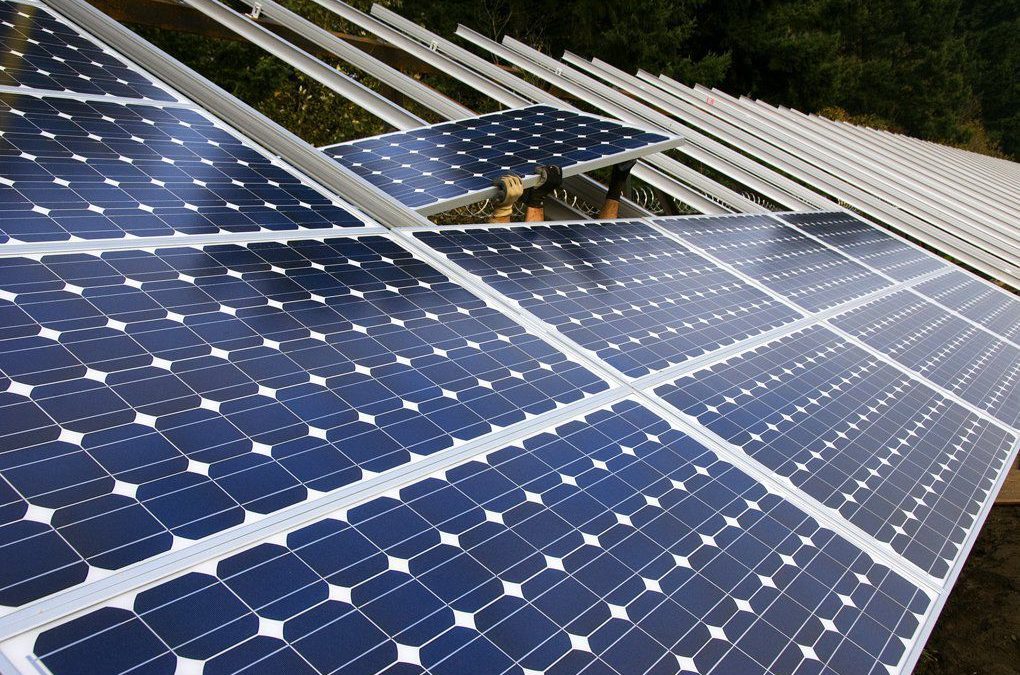After simmering on the proverbial back burner for nearly two years, the third-party financing issue relating to customer-sited solar power has been thrust back into the public spotlight as pressure builds to resolve the legal questions surrounding it.
The reemergence of this issue can be traced to two parallel developments. The first is a Public Service Commission (PSC) proceeding moving toward a ruling settling the legality of third-party-owned solar systems serving individual retail customers. The second is a lawsuit recently filed by the Midwest Renewable Energy Association in Portage County Circuit Court, challenging the PSC’s authority to regulate the financing of behind-the-meter systems that serve host customers only.
The PSC proceeding began in March 2019 when Eagle Point Solar, a Dubuque-based solar contractor, filed a complaint against We Energies for blocking the installation of rooftop arrays serving the City of Milwaukee. In its complaint, Eagle Point contends that PSC Chapter 119, which regulates the interaction between small-scale electricity producers and the utility grid, does not give We Energies the right to deny interconnection to a customer based on how the generating equipment is financed. According to We Energies, however, a third party owner of the equipment that supplies electricity to one customer under contract should be regulated as a public utility.
Following an extended period of legal maneuvering, the PSC set in motion a process for investigating Eagle Point’s complaint (Docket 9300-DR-104). In so doing, it expanded the scope of the proceeding to consider the public utility question that led to the interconnection denial. When the parties finished entering evidence into the hearing record, the PSC opened a public comment window on the proceeding, which ended on February 23rd.
Supporters of third-party financing sprang into action, led by RENEW. To illustrate the breadth and depth of support for opening up the solar market in this fashion, RENEW circulated an action alert encouraging those who care about this issue to submit comments supporting Eagle Point’s position. Networks such as Wisconsin Climate Table, Wisconsin Health Practitioners for Climate Action, and our own solar contractor e-mail list helped circulate RENEW’s alert beyond our own activist base. At the same time, organizations such as 350 Madison and Environmental Law and Policy Center (ELPC) asked their activists and members to post comments on the PSC website.
As a result of our combined efforts, a total of 336 individuals and organizations weighed with their views on the Eagle Point matter. Of that, 327 comments expressed support for opening the market to allow third-party ownership of solar electric systems in Wisconsin. In that overwhelming display of support, several themes prevailed, including the following:
- Third-party financing is already expressly authorized in 28 states;
- Allowing third-party-owned solar systems is consistent with Wisconsin case law;
- The threat of being regulated as a public utility discourages businesses from providing solar power generated onsite to retail customers through leases and sale agreements;
- Third-party financing would make solar power affordable to low-to-moderate income households and nonprofit entities such as schools;
- Expanding solar financing options would help communities reduce their reliance on harmful fossil energy sources; and
- Expanding solar financing options would invigorate local economies.
These arguments track closely to those articulated by Wisconsin solar contractors and consultants in a March 2019 filing urging the Commission to approve Eagle Point’s petition. Similar to our efforts during the comment period, RENEW shaped the themes in that statement and pulled together a coalition of market actors to demonstrate support for third-party financed solar energy. In the intervening two years, Eagle Point Solar and the City of Milwaukee labored to amass a set of facts and legal arguments to support a finding that WEPCO’s action was unlawful.
The merits of this case are clear-cut, as are the regulatory remedies. Other states that regulate electric utilities have taken steps to affirm the legality of third-party-financed solar, most notably Iowa, which did so in 2014, the result of a long and expensive legal fight waged by Eagle Point. In contrast to Iowa, the State of Wisconsin has allowed this issue to languish for many years without resolution.
But with the filing of briefs from parties on March 10th, the Eagle Point proceeding has finally reached the home stretch. The strong outpouring of public support for third-party financed solar tells us that a policy call from the PSC is long overdue.
In a brief representing RENEW and other solar advocates, we urged the PSC to take the following actions:
- Order WEPCO to interconnect the City of Milwaukee solar projects, regardless of how those projects are financed;
- Clarify that a utility may not deny interconnection based on project ownership, and
- Clarify that third-party owners of customer-sited distributed generation are not “public utilities” under Wisconsin law.
RENEW would like to thank Eagle Point Solar and the City of Milwaukee for leading this crucially important regulatory battle, ELPC for drafting a particularly persuasive legal brief on behalf of clean energy advocates, and the 327 commenters who affirmed their desire for an expanded solar marketplace free of utility interference.

